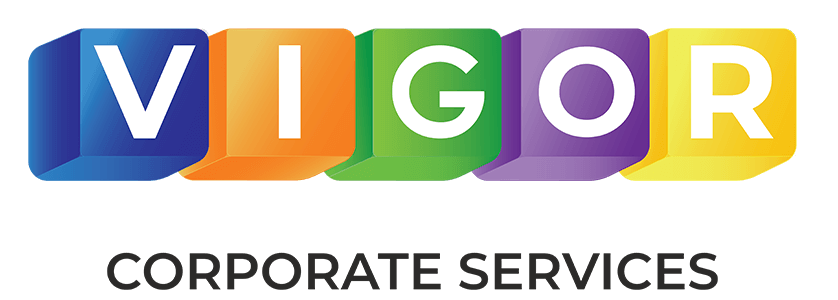With unlimited business options and opportunities, the UAE government welcomes entrepreneurs and business people from all around the world to start their businesses in any emirates of the UAE. With multiple zones, jurisdictions, legal forms, shareholders, and trade license options, every type of business entity can be formed. In this article, we will explore sole proprietorship in the UAE in detail.
What is the sole establishment?
A sole establishment or sole proprietorship is a business that is owned by one individual. The license will be issued in their name. And that individual is called the sole proprietor. Unlike other corporate companies, there will not be more than one shareholder and the owner will operate the whole company and will be responsible for all the activities, profits, and financial liabilities of this type of business entity.
Cost involved in obtaining a sole proprietorship license in Dubai
The cost of obtaining a sole proprietorship license in Dubai can vary depending on the type of business and the type of license required. Here are some estimated costs:
- Trade license: The cost of a trade license can range from AED 7,500 to AED 15,000 per year, depending on the type of business and the size of the office space.
- Commercial license: The cost of a commercial license can range from AED 12,000 to AED 20,000 per year, depending on the type of business and the size of the office space.
- Activity-specific licenses: The cost of activity-specific licenses can vary, but they typically range from AED 5,000 to AED 50,000 per year, depending on the type of license and the nature of the business.
- Local sponsor fee: A local sponsor is required for non-UAE nationals setting up a sole proprietorship in Dubai. The cost of a local sponsor can range from AED 20,000 to AED 50,000 per year, depending on the arrangement made with the sponsor.
These estimates are subject to change, and it is advisable to contact the Department of Economic Development (DED) for the most up-to-date information on the cost of obtaining a sole proprietorship license in Dubai.
Comparison of sole proprietorship license cost with other business license types in Dubai
In Dubai, the cost of obtaining a license for a sole proprietorship can be compared to the cost of obtaining licenses for other business structures, such as a limited liability company (LLC) or a branch office. Here is a general comparison:
- Sole proprietorship: The cost of a sole proprietorship license can range from AED 7,500 to AED 50,000 per year, depending on the type of business and the type of license required.
- Limited liability company (LLC): The cost of an LLC license in Dubai can range from AED 25,000 to AED 60,000 per year, depending on the type of business and the size of the office space.
- Branch office: The cost of a branch office license in Dubai can range from AED 40,000 to AED 80,000 per year, depending on the type of business and the size of the office space.
It’s important to note that these are general estimates and the actual cost may vary depending on the type of business and the specific requirements of the license. It is advisable to contact the Department of Economic Development (DED) for the most up-to-date information on the cost of obtaining a license for different business structures in Dubai.
Who can Set Up a Sole Proprietorship in the UAE?
Any entrepreneur can form their sole establishment in the UAE regardless of whether they are UAE nationals, GCC natives, or expats.
In a sole proprietorship, you have many options to explore. You can provide services in real estate, the trading field, import-export, and many other industrial services. You can have a consultancy firm with local service agents providing different business advice.
However, if you are a foreigner, you are only allowed to set up a sole establishment in certain fields. For example, you would not be allowed to be a sole proprietor in trading, real estate, or import-export business. Rather, you can offer IT, marketing, consultancy, legal, and engineering services.
What are the advantages of a sole establishment license?
Owned by one:
Expats have the advantage to be the sole owner of the company without any shareholders or sponsors under sole proprietorships. You will be personally liable for all the obligations. Be it financial or activity-related.
Profit control:
Having 100% ownership of the business means keeping the 100% profits of the company as well.
Cost-efficient Company formation
Sole establishments or sole proprietorships require zero capital investment and a minimal seeding budget. That all makes it an affordable business option.
Easy and quick registration process
The sole establishment UAE has one of the easiest and less-required document registering processes.
No limitation of office location
A sole proprietorship gives you the leverage of having office premises in any location in the UAE. It can be a free zone or any other location.
Are there any disadvantages to having a sole establishment in UAE?
With advantages come a few disadvantages. And if you make an efficient business plan, those advantages can turn into benefits.
Physical offices:
Not really a disadvantage– for all sole proprietorship companies, physical offices are compulsory as per the rule from the department of economic development (DED).
Personal Liability:
In a sole proprietorship, the owner is personally liable for all debts and obligations of the business. All business debts and company financial decisions would be directly associated with the business owner. The company would not be a separate entity. This means that if the business cannot pay its debts, the owner’s personal assets (like their savings account or house) can be used to pay off creditors.
Difficulty in Raising Capital:
Sole proprietorships are often limited in the amount of money they can raise to finance their business. This is because sole proprietors can only use their personal resources, like savings or loans from family and friends, to fund their businesses. They may also find it difficult to get loans from banks because they do not have any collateral to offer as security for the loan.
How can you start your sole proprietorship in UAE?
Getting a sole proprietorship licence is easier than you think. If you have all documents prepared with the help of a local service agent you can get your licence within 4 working days. A few of the required documents would be: a visa copy, passport copy, passport-sized pictures, and a local service agent’s emirates IS copy.
Here are the steps you need to follow:
Step 1: Get preliminary approval
The first thing to do is to get approval from DED Dubai to be sure that the UAE government is clearing your business to get started.
Step 2: Trader name Approval
To start a sole proprietorship in Dubai or a business in the UAE, you have to submit at least three trade names. One of them would be approved.
Step 3: Signing the LSA contract
A LSA contract is basically an agreement you have to sign with your local service agent after preparing it. Both have to present at the time of submission.
Step 4: Office space
For any type of sole establishment, you need to have an office space as UAE laws require. Once you have chosen the location, now it is time to get a tenancy contract and get EJARI.
EJARI is an online registration system for tenancy contracts in Dubai that was introduced by the Dubai Land Department in 2007. The system is mandatory for all tenancy contracts in Dubai and helps to regulate and standardize the rental market.
To register a tenancy contract with EJARI, every foreign national will need the following documents:
-The original tenancy contract
-A copy of the landlord’s Emirates ID or passport
-A copy of the tenant’s Emirates ID or passport
-A No Objection Certificate (NOC) from your employer, if you are a resident expatriate
-Proof of payment for the registration fee
Further approvals:
Depending on your business activities, you might require additional approvals from different government and independent authorities in the UAE. Your consultancy helper and DED will guide you regarding this. Once all the approvals are done, you can apply for registration.
Registration fee:
After submitting your application, you would receive a payment voucher. Pay the fee and within a few days, you will receive your trade license to start a business.
What is the difference between LLC and sole proprietorship UAE?
There are a few key differences between limited liability companies and sole establishments in the UAE. For one, LLC must have a minimum of two shareholders, while sole establishments can be owned by a single person. LLCs also tend to be more expensive to set up and require more paperwork than sole establishments. Finally, LLC offers limited liability protection to its owners, meaning that the owner’s personal assets are not at risk if the business is sued or goes into debt. Sole establishments, on the other hand, do not offer this same level of protection.
To know about the professional services and application process to form sole proprietorships anywhere in the UAE, contact Vigor business now to get help from the team of experts who can guide you about legal entities and business types.




